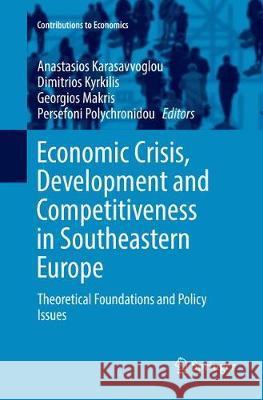Economic Crisis, Development and Competitiveness in Southeastern Europe: Theoretical Foundations and Policy Issues » książka
topmenu
Economic Crisis, Development and Competitiveness in Southeastern Europe: Theoretical Foundations and Policy Issues
ISBN-13: 9783319820798 / Angielski / Miękka / 2018 / 157 str.
Economic Crisis, Development and Competitiveness in Southeastern Europe: Theoretical Foundations and Policy Issues
ISBN-13: 9783319820798 / Angielski / Miękka / 2018 / 157 str.
cena 201,24
(netto: 191,66 VAT: 5%)
Najniższa cena z 30 dni: 192,74
(netto: 191,66 VAT: 5%)
Najniższa cena z 30 dni: 192,74
Termin realizacji zamówienia:
ok. 16-18 dni roboczych.
ok. 16-18 dni roboczych.
Darmowa dostawa!
Kategorie:
Kategorie BISAC:
Wydawca:
Springer
Seria wydawnicza:
Język:
Angielski
ISBN-13:
9783319820798
Rok wydania:
2018
Wydanie:
Softcover Repri
Ilość stron:
157
Waga:
0.25 kg
Wymiary:
23.39 x 15.6 x 0.94
Oprawa:
Miękka
Wolumenów:
01
Dodatkowe informacje:
Wydanie ilustrowane











